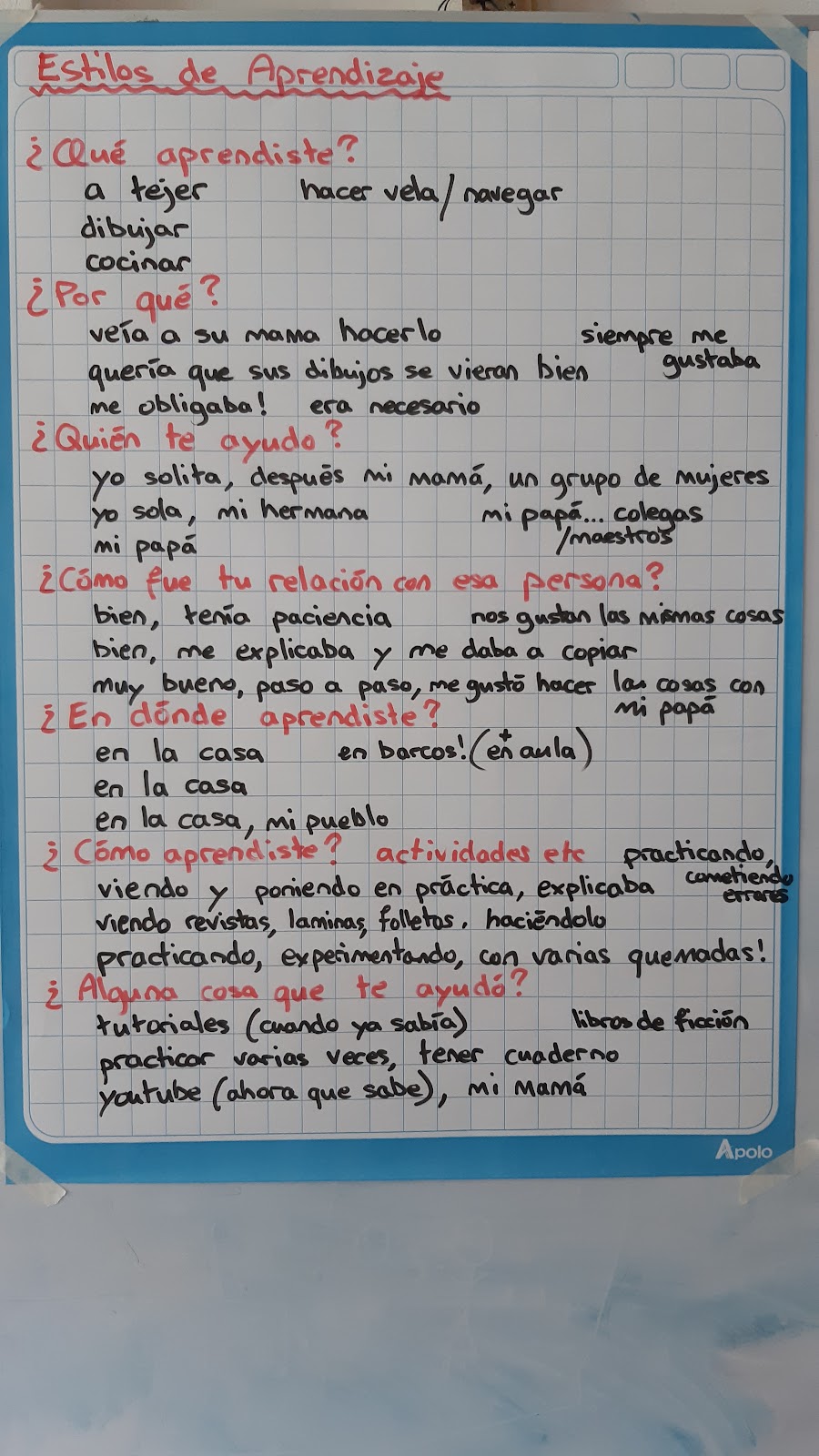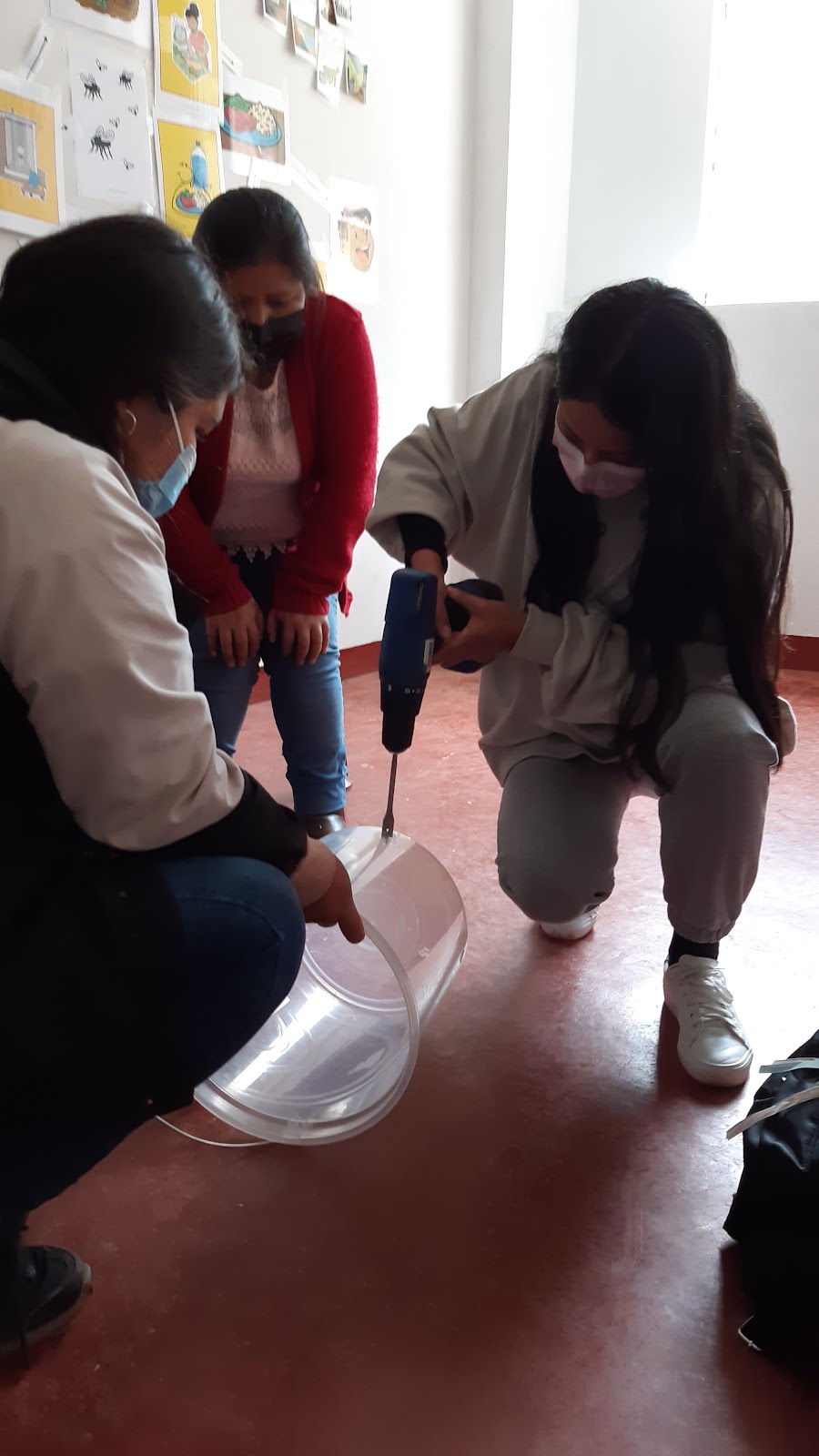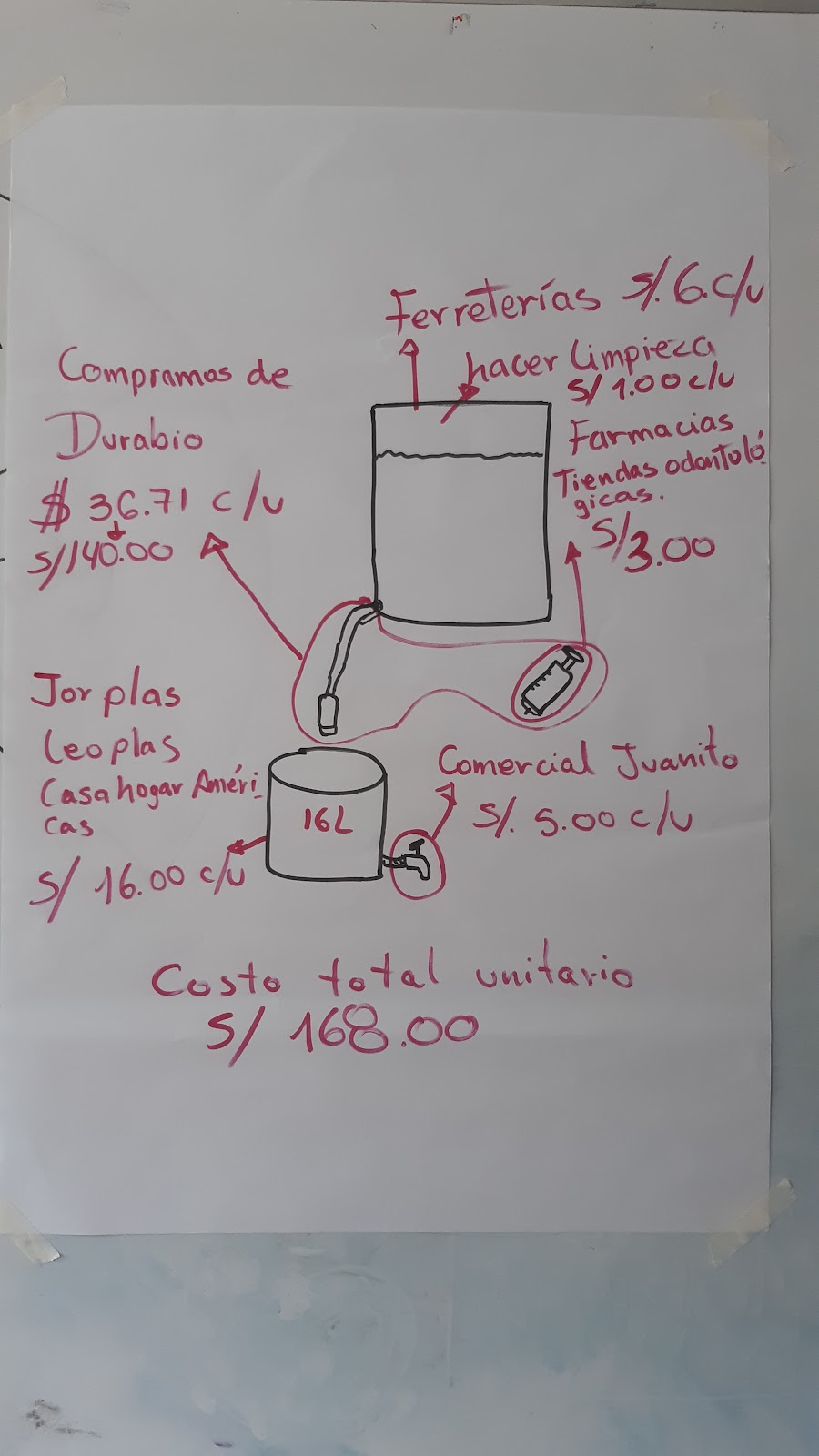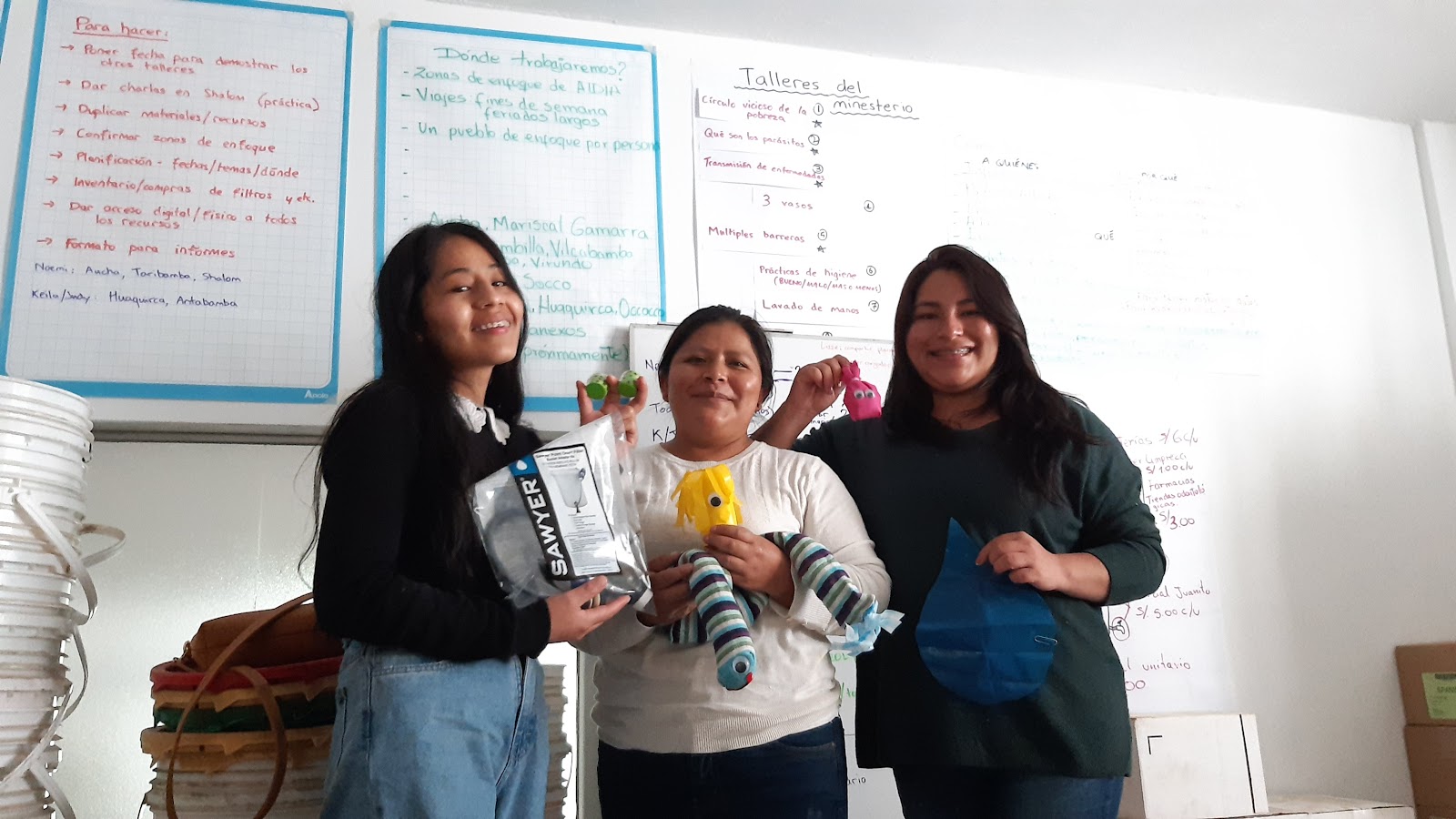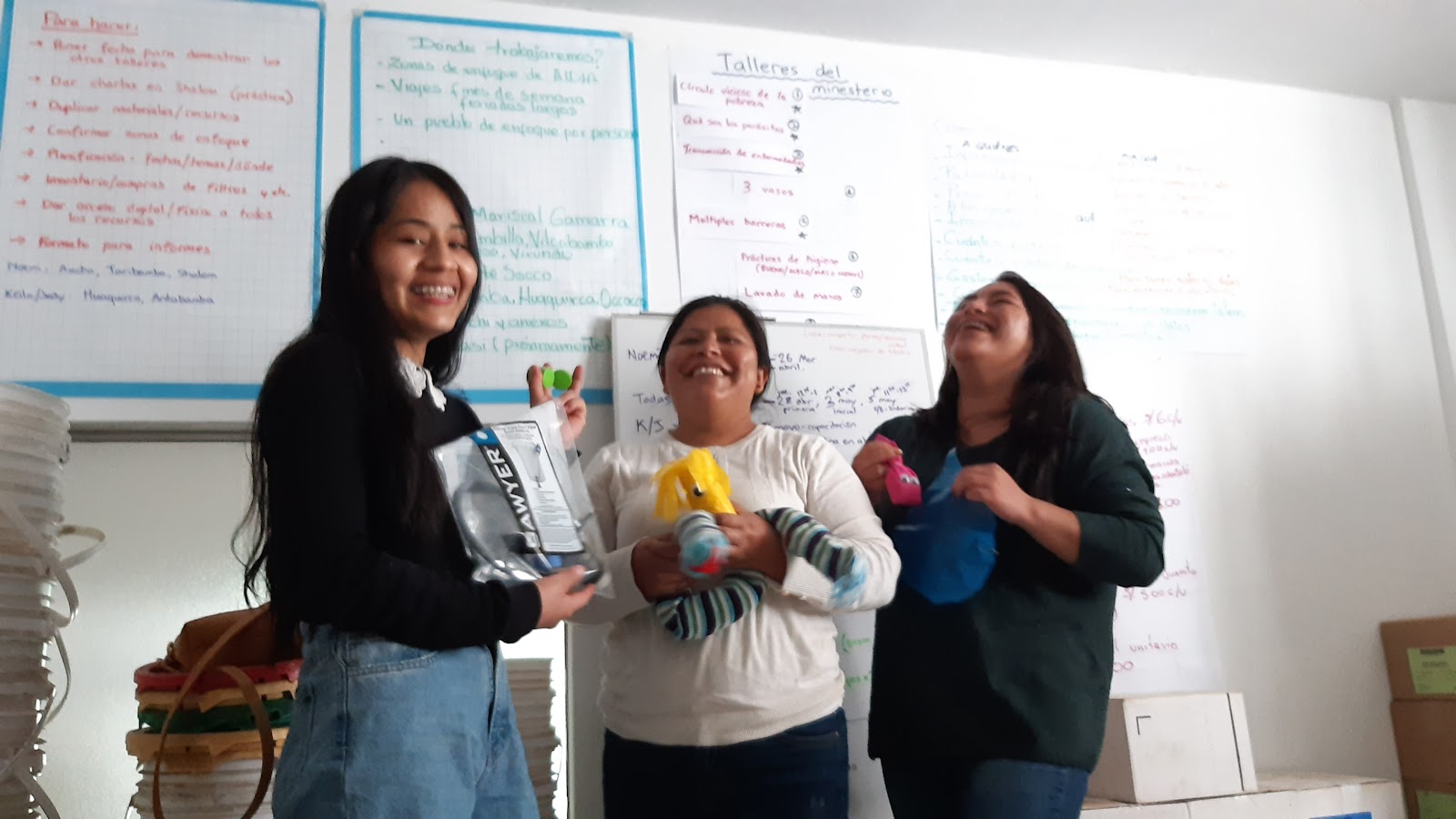 |
| ...and some ideas for next year (more dots means the team thought it should be a priority!) |
Lizzie goes to Peru
Monday, 16 January 2023
End-of-year Review of the Water Ministry
Friday, 6 January 2023
The Bible...still important for you (and me)?
I'm studying a Diploma in Christian Leadership and my first Assignment was to be written in the form of a blog post - so here it is!
The Bible…still important for you (and me)?
My short answer to this question is yes.
But let’s look at
the words and ideas in the question a bit more closely.
“The Bible…”
I guess if we are
asking about the Bible, we need to be clear on what we mean. What is it? A historic text? A message from
God? A sacred symbol? Is it reliable? Is it even finished? Authors[1]
suggest God (and we) are still writing his story. People talk about “the
word of God”, varying in meaning between Jesus himself, his words, the written
Bible, and revelation received directly from God today.
Do we consider the
Bible as one whole, or as lots of separate parts (2 testaments, 66 books, or
31,102 verses)? Is it valid to say the
Bible as a whole is important for you?
Or that some verses are individually important?
Is it all true,
and accurate? When I was at university in the 2000s, there was lots of
emotionally charged debate over whether the Bible is “inerrant”, and what this
meant. Now it seems to be more widely accepted that “inerrant” is perhaps not the
best word to use, rather that God was “intimately and creatively”
involved in its writing[2].
These are all good questions! But I would say the whole Bible, as published today, is important as the collection of writings brought together by God, about him and his people.
“…still…”
Was the Bible
important…
…
when written, but not now in today’s world?
…
for Jews and early Christians, but not now we have the Holy Spirit?
…
in me becoming a Christian, but not now
that I know God?
The
Bible itself says:
Isaiah 40:8 “The grass withers and the
flowers fall, but the word of our God stands forever."
Matt 24:35 “Heaven and earth will pass
away, but my words will never pass away.“
2 Tim 3:16 “All Scripture is God-breathed
and is useful for teaching, rebuking, correcting and training in righteousness.”
Even when this world
is replaced by God’s eternal Kingdom, his words will still be
important. They keep their value even
when everything else has fundamentally changed.
Culture, this world, our way of life – these things are
temporary, and lose their importance (although this is hard for us to
accept).
Jesus, being in
very nature God, and filled with the Spirit, still valued the Scriptures highly,
reading from them and teaching. We can’t
let our assurance of God within us devalue his words to us in the Bible.
Timothy shows
that as well as God’s word leading me to be saved, it also helps me in the
process of growing, living, and teaching.
God’s word stands, important as ever.
”…important…”
What do we mean
when we say something (or someone) is important? That it has great power or influence? Is it
something I can use for my purpose, or something that has an effect on me?
Important: “necessary or of great
value” / “having great effect or influence”[3]
These are
interesting definitions because they talk not just about value but about
consequences. Something that is important is also to have a practical effect on
our lives. The Bible does this.
Hebrews 4:12 “For the word of God is alive
and active. Sharper than any double-edged sword, it penetrates even to dividing
soul and spirit, joints and marrow; it judges the thoughts and attitudes of the
heart.”
This reminds me
of my first encounters with a machete in villages in northern Peru. It was used for clearing a path, opening a
papaya, cutting toenails – everything.
It was “necessary”, and did have “great effect”. And the Bible is even sharper!
“…for…”
There’s a
difference between something being objectively important “for” me (like oxygen,
exercise, government policies) and being subjectively important “to” me (like
family, a view of the sea, freedom to choose what to wear). I might not even be aware of some of the
things that are important “for” me, though they are necessary and deeply affect
my life – but their importance doesn’t depend on my point of view.
The Bible,
whether or not it is important “to” us, is definitely important “for” us.
Psalm 119 is full
of examples where the author recognises God’s word’s great importance “for” him,
but he also shows that is important “to” him.
Perhaps if we recognise our need for the Bible and its fundamental
importance in our life, we start to value and love it as David did.
“…you…”
Who are you? I’ve seen the importance of the Bible in the
last few months for the following people I know:
· Friends looking to heal their relationship
· People setting up and leading churches
· Quechua-speaking Christians who are receiving the full Bible in their dialect for the first time
· Someone struggling to forgive others who hurt her, and move on
· Teenagers thinking about relationships and decision-making
I asked Oliver
(age 9), the title question and he said: “Yes, because if you don’t read the
Bible you won’t understand who Jesus is”.
Whoever you are,
God’s word in the Bible is vitally important for your life.
“…(and me)…”
I know that the
Bible is very important for me. I can
trace its impact through my life. I’ve been taught from it and come to believe,
I’ve searched for knowledge, understanding and help, I’ve got to know God more
through it. Therefore it’s also very
important to me.
But reading it is
like exercise – I know it is important and has soooo many benefits, but as well
as ultimately being enjoyable (both the process and result) it is a lot of work
both to start and continue. Can you see
its importance in my life? Yes, usually.
I know God’s word is important for me. Can you see its importance in my life? Again yes, usually. Hm, a bit of a challenge there for me!
“…?”
I may have asked
more questions than I have answered in this blog, but I shall finish with a few
more.
The Bible is
still vitally important for you.
Did you know that? Is it also important TO you? What will you do about it?
Some useful books
that might help you to answer these questions (full references
below in the bibliography):
· Engaging the Word (Peter M. Phillips) – lots of discussion of what the Bible is, what its purpose is, and how we engage with it.
· How to read the Bible so that it makes a difference (Michael Parsons) – loads of helpful suggestions of varied and creative ways to engage with the Bible.
References & Bibliography
CAMBRIGDE UNIVERSITY PRESS., 2013.
“Important”, Cambridge Advanced Learner’s Dictionary (4th ed).
Cambridge University Press, Cambridge.
FEE,
G.D. & STEWART, D., 2003. How to Read the Bible for All Its Worth (3rd
ed). Zondervan, Grand Rapids, MI.
HARDY,
L., 2020. Honey from the Comb. Birch Island Books, St. Paul, MN.
PARSONS,
M., 2020. How to read the Bible so that it makes a difference. BRF,
Abingdon.
PHILLIPS,
M.P., 2017. Engaging the Word. BRF, Abingdon.
WRIGHT,
T., 2013. Scripture and the Authority of God (2nd ed). SPCK,
London.
(Bible
references use the NIVUK translation)
[1] notably
Phillips and Parsons, read as part of this study
[2]
Parsons, p.15
[3]Cambridge
University Press.
Tuesday, 22 February 2022
AIDIA Water Team!
We had such a great week training the new AIDIA water team - Noemi, Keila and Judy will work part-time with me this year.
Here's a video we made explaining what we've been doing over the week - and then some more details below.
Getting an idea of what the team already knew - and then how much they learned.
Prioritising different topics for teaching
Setting up the water filters
Who are the stakeholders? Housewives, teachers, local water board. churches, children, local council, health centre, regional development council, other AIDIA areas.
Monday, 27 September 2021
Vaccine!
How amazing that I as a foreigner could receive the Covid vaccine here in Peru! I went the first day it was available in Abancay for those under 30-39. For such a large age-group I thought the queue would be horrendous, so I went an hour before they opened and it wasn't too bad. The whoel thing took about 4 hours so I still had some Saturday left.
Peru uses various vaccines depending on availability, and some are not accepted in the UK. Of course you are not told which you'll get before you go, as they don't want people to pick and choose. "The best vaccine is the one that's in your arm." As I queued I was thinking about travel requirements and my next trip to the UK (whenever that may be) - if I get a vaccine that isn't recognised by the NHS, I potentially could need more quarantining and 2 more vaccine doses when I visit! But I decided that my reason for being vaccinated is not to make my own life and travel easier - rather it's to reduce the risk for the people that I travel with and stay with in my work. If there's a downside, ok I accept that as part of the "sacrifice" of being a missionary.
And after all that soul-searching, prayer and self-sacrifice: it was Pfizer!
I still can't get it registered in the UK yet as it was administered overseas, but the NHS is working out a system for that. At least it's registered in the Peruvian system and I managed to get them to change my country of origin from British Virgin Islands back to United Kingdom (quite an understandable error when my documents say my nationality is "British"!)
2 days ago I had my second dose. Slightly more pain but a lot less queueing.
Tuesday, 29 June 2021
Back to Mariscal Gamarra
Back in March last year, I visited this group of villages, and assured them I'd be back within a month. Little did I know...
After a heavy cold (no, not Covid, according to the test!) last week postponed my much-delayed return, we finally went on Thursday. My plan: to visit the people who had bought filters last year, as well as to generally catch up and encourage the churches. Cesilio's plan: to deliver 300 food parcels in the various villages.
There was some drama on the way, including not knowing whether the truck was behind or ahead of us, getting stuck at some roadworks (but eventually let through) and then finding the truck broken down halfway through the new section of road being worked on! But eventually we arrived to the villages in the valley, and it was wonderful to be greeted warmly by friends there who I've now known, amazingly, for 8 years.
I managed to visit most of my water-filter families. I had very low expectations, as I know how important follow-up visits are and hadn't managed to do any - in some cases these expectations were justified but in others there was good news! I fixed some broken filters, retrained people in how to clean them, and sold a few more.
Saturday, 9 January 2021
A brief look through the year.
January: Each year begins with SIM Peru’s Conference in Lima
– a great time to spend with the other missionaries who are usually far away in
other cities in Peru. In January I also
have a week of classes to improve my Quechua language speaking - I’ve been
meeting with the same tutor for 3 years now and have a good relationship with
her.
February: I had a wonderful 2-week holiday, visiting friends
in Canada - a great adventure and a break.
On my return I started plans and preparation for the next few month of
visits and my trip to the UK.
April: I was concerned about young Christians in the town,
who could no longer attend church and many of whom did not have the maturity or
motivation to continue their own spiritual growth. I started producing live videos with sung
worship, Bible study and prayer, for young people and students. These were well received, and I continued 3
times a week through to August. It was
great to see many people engaging with this material. Churches in the villages continued to
encourage one another with individual visits, but were cut off from the city
apart from phone calls.
June: I took on the role of SIM Peru Personnel Coordinator, helping
the Peru Director in taking care of our team and those enquiring about joining
us. During lockdown and my time in the
UK, there has been less work to be done but it will start to occupy me more and
become a part-time role over 2021. I
continue to learn how to support the team in this way.
July: Lockdown eased in Peru and I was able to visit some
friends in the city. I also made
enquiries about travel for my planned Home Assignment and at the end of the
month I was able to travel to the UK.
August: I spent the month visiting my family and making
revised plans for the next few months.
September: I had my SIM UK debrief and my medical, and started to visit churches and friends around the UK. Because of Covid, I stayed longer in each place before moving on, and saw people individually rather than in large groups – this made the pace a lot slower than usual UK visits, which I appreciated. I was very glad of the summer weather for outdoor meetings.
October: I continued with church visits, some of which were
for in-person services - was a treat and an encouragement to see a variety of
approaches that churches are taking. I
was also able to have some short holidays with family.
November: I had valuable time with my Mum during lockdown,
and had to make my remaining 2 church visits virtual. It was still wonderful to spend time online with
old friends from churches I know well.
December: I had been praying I would be allowed to attend a
week-long retreat I had booked in the autumn and, wonderfully, this was allowed
to go ahead. It was a great time of
listening to God, thinking about his plans and his ways, and a reminder to
trust him and stay attentive to his voice.
(In early January 2021 I was able to return to Peru, where I
am writing this.)










